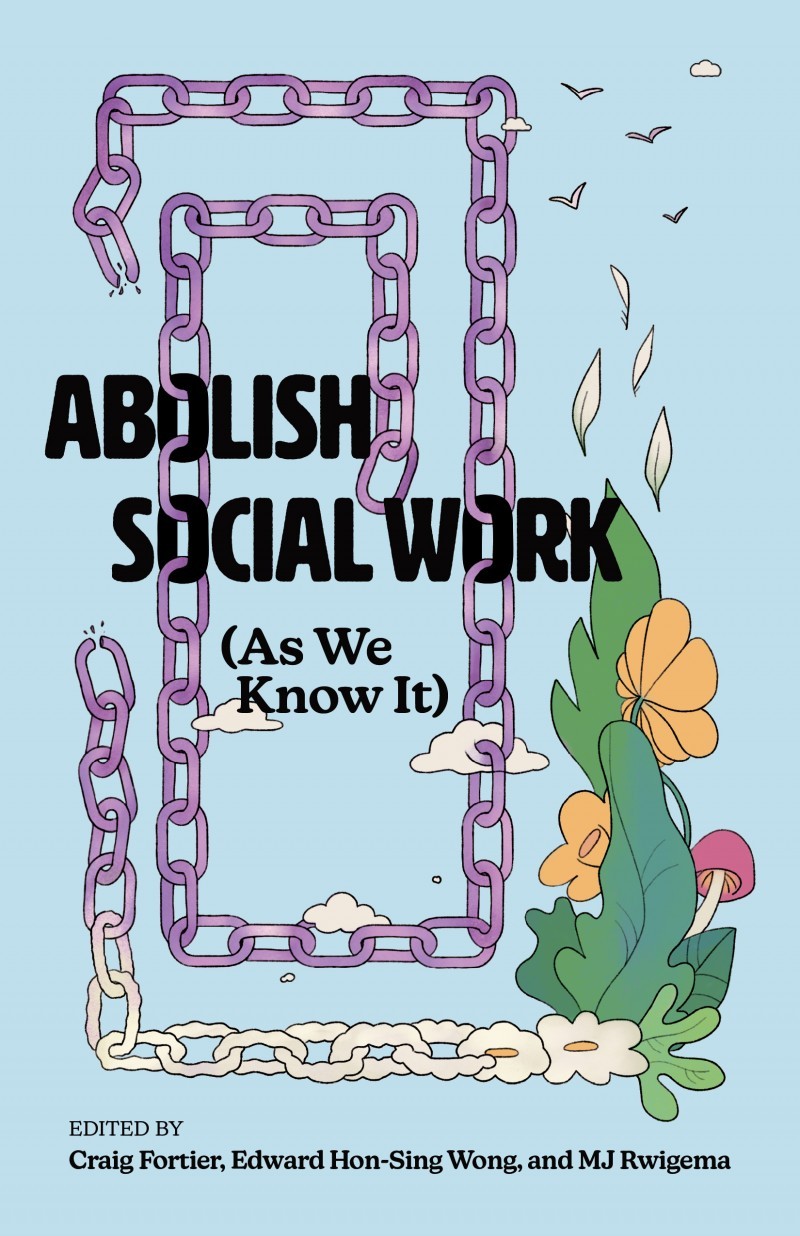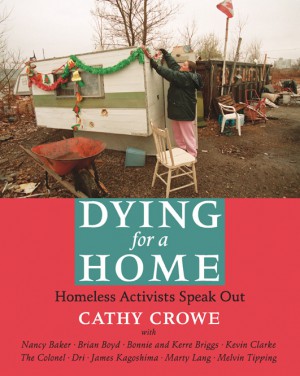
Abolish Social Work (As We Know It)
Abolish Social Work (As We Know It) responds to the timely and important call for police abolition by analyzing professional social work as one alternative commonly proposed as a ready-made solution to ending police brutality. Drawing on both historical analysis and lessons learned from decades of organizing abolitionist and decolonizing practices within the field and practice of social work (including social service, community organizing, and other helping fields), this book is an important contribution in the discussion of what abolitionist social work could look like. This edited volume brings together predominantly BIPOC and queer/trans* social work survivors, community-based activists, educators, and frontline social workers to propose both an abolitionist framework for social work practice and a transformative framework that calls for the dissolution and restructuring of social work as a profession.
Rejecting the practices and values encapsulated by professional social work as embedded in carceral and colonial systems, Abolish Social Work (As We Know It) moves us towards a social work framework guided by principles of mutual aid, accountability, and relationality led by Indigenous, Black, queer/trans*, racialized, immigrant, disabled, poor and other communities for whom social work has inserted itself into their lives.
Praise
“Social movements are coalescing around the crucial work of struggling for abolitionist futures, based around the vital maxims of ‘care not cops,’ and ‘support not punishment.’ But what kind of care and support are we orienting toward? Abolish Social Work (As We Know It) helps to clarify these liberatory visions by engaging in the critical and careful work of assessing the carceral complicities at work in the ‘caring professions’ writ large. The authors provide both a trenchant critique of social work as it has historically evolved, and a transformative vision for what caring could mean.”
– Robyn Maynard, author of Policing Black Lives and co-author of Rehearsals for Living; assistant professor, Department of Historical and Cultural Studies, University of Toronto
“Unlike anti-oppressive social work texts that call on social workers to act better, Abolish Social Work (As We Know It) also calls on them to refuse to act: to act extra-legally, and to act prefiguratively. This collection foregrounds the voices of marginalized communities and people who have been subjected to social work in order to go beyond critique and to provide concrete examples of non-professional models of social working. Abolish Social Work (As We Know It) is a must-read for practitioners, aspiring practitioners, scholars, and critics of social work.”
– A. J. Withers, co-author of A Violent History of Benevolence: Interlocking Oppression in the Moral Economies of Social Working
“What a ground-breaking and courageous critique of contemporary social work as a profession and practice! Abolish Social Work (As We Know It) is an inspiring collection that offers compelling arguments for abolishing the current incarnation of social work, advocating instead for a radical reimagining that includes transformative models rooted in community care and solidarity. It is essential reading for social work scholars, practitioners, and activists committed to dismantling oppressive systems and fostering genuine liberation for those most affected by intersecting forms of oppression.”
– Camisha Sibblis, director, Black Studies Institute; assistant professor, Sociology and Criminology, University of Windsor
“Abolish Social Work (As We Know It) is a cutting-edge collection that joins the growing canon of abolitionist, anti-carceral, and decolonial social work literature calling for a fresh, new, liberatory approach to social work theory and practice. Centering communities that are marginalized and heavily policed, the editors and authors provide a complex and compelling update to the care, coercion, and control nexus underlying contemporary social work. This collection provides an important and decisive contribution to this pressing and important debate and the potential for an emancipatory future for social work.”
– Donna Baines, professor and former director, School of Social Work, University of British Columbia
“Abolish Social Work (As We Know It) is a transformative collection of essays by a range of critical social work scholars and practitioners, community-based advocates and activists, and people who have been directly harmed by social work institutions and agencies. Together, the chapters advance an important critique of carceral social work practice, emphasizing the need for resistance to penality and policing within the field and the necessity of decolonization, anti-racism, mutual aid, and community politics of care. It is a must-read for professional social workers and anyone engaged in informal social work!”
– Emily van der Meulen, professor, Department of Criminology, Toronto Metropolitan University
“Abolish Social Work (As We Know It) is an essential collection, which challenges the long-held assumption that social work is the ‘helping profession’ applied equitably to those in need. The collection calls us to reflect upon the principles of abolitionist social work, which challenge the carceral-entangled, power-over nature of the profession, and to evolve social work into a profession that is congruent with the values of integrity, solidarity, and care that it espouses.”
– Raven Sinclair, professor (retired), University of Regina; CEO Raven Sinclair Consulting
Contents
| Introduction | Craig Fortier, Edward Hon-Sing Wong, and MJ Rwigema |
| Part 1: Abolition Social Work | |
| Chapter 1. Towards Abolitionist Social Work: Building Praxis | Cameron Rasmussen |
| Chapter 2. Mental Health Workers Have Never Been the Solution to Racial Violence by Police | Edward Hon-Sing Wong |
| Chapter 3. For Black Women, Health Care is an Abolition Issue | Renée Nichole Ferguson |
| Chapter 4. “Keep This Up and They’ll Be Pulling You from the Red": Young People Are Dying to Survive Winnipeg’s Child Welfare System | Juvie |
| Chapter 5. Not Criminally Responsible: The Fatal Intersection of the Mental Health and Justice Systems | Carly Seltzer, Lue Palmer, and Golta Shahidi |
| Chapter 6. Shifting Praxis: Social Work and Community-Based Approaches to Abolition | Krystle Skeete and Heather Bergen |
| Chapter 7. The Antitrafficking Movement Is Not Abolitionist: How Carceral Feminists and Social Workers Harm Migrant Sex Workers | Elene Lam |
| Chapter 8. A Masterpiece We Can Call Abolition: Reflections from the Pages of Cell Count | Sena Hussain, Nolan Turcotte, and Zakaria Amara |
| Part 2: Social Work Abolition | |
| Chapter 9. Social Work Abolition in Unsettling Times | Craig Fortier and Edward Hon-Sing Wong |
| Chapter 10. The Only Good Social Worker Is a Criminal Social Worker | Chanelle Gallant |
| Chapter 11. Conversations on Decolonizing Justice: With Members of It Starts With Us and No More Silence | Audrey Huntley and Carol Lynne D’Arcangelis |
| Chapter 12. Baby Bundle Project and Community Birth Work Journeys | Krysta Williams |
| Chapter 13. Social Work’s Very Complicated Relationship with Indigenous Languages | Rochelle Allan |
| Chapter 14. Toronto Indigenous Harm Reduction: Solidarity with Indigenous Encampment Residents | Brianna Olson Pitawanakwat |
| Chapter 15. Black Creek Community Farm: Mutual Aid, Abolition, and Food Justice in Jane and Finch | Suzanne Narain, Sabrina “Butterfly” Gopaul, Sam Tecle, Zakisha Brown, Rosie Mishaiel, Anan Lololi, and Leticia Ama Deawuo |
| Notes | |
| Index |




